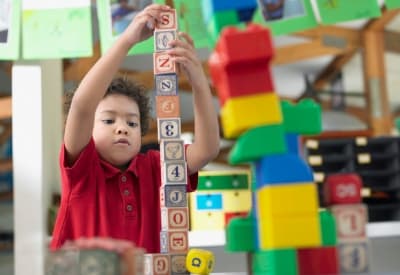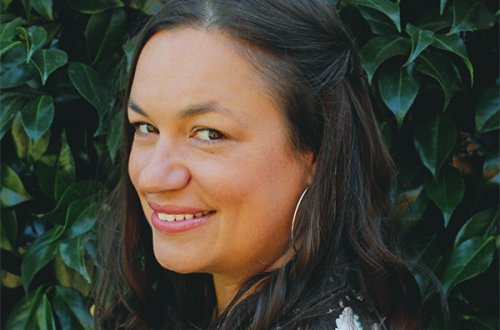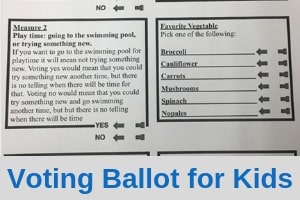Preschool Search Checklist and Vocabulary
By Jan Pierce
Pre-School Visit Checklist (answer yes or no)
Quality pre-schools will have printed material for you to study in making your school choice.
- Do the stated learning goals match mine?

- Do the goals address all areas of my child’s development including social play, control of emotions, language skills, learning letters and numbers, engaging in science, art and physical development?
- Am I comfortable with the school’s discipline policies?
- Is the school licensed by the state? Is it accredited by a national association like the NAEYC?
- Does the lead teacher have a Bachelor’s degree or certification in Early Childhood Education?
- Are support workers trained?
- Is there one adult for every ten children?
- Are there separate learning centers for various activities such as art, reading, dramatic play, writing, etc.?
- Does the school use a well-known quality curriculum preparing children for kindergarten later on?
- Does the class follow a daily routine that offers a variety of activities? Do the children play both outdoors and inside?
- Are parents free to drop in without making an appointment?
- Does the school have a means of regularly communicating with parents?
- Do they report the activities of the past week or month?
- Do you feel welcome?
- Are the teachers warm and caring with the children?
- Do they have conversations with the children as they work or play?
- Are the children happy and engaged?
- Do children have the opportunity to choose their activities part of the time?
- Are the children talking and interacting with each other
- Are books and read-alouds a regular part of the day?
- Is children’s art work and other work samples displayed?
- Are the furniture, equipment and toys age appropriate?
- In good working condition?
As you check yes or no to each of these questions, decide which of them are deal-breakers for your family and which are not as important. Jot down notes as they occur to you and feel free to ask more questions of the staff and administrators.
Pre-School Vocabulary
Becoming familiar with the following terms may help you make your pre-school decision.
The Montessori Method focuses on maintaining the individuality of each child in the learning process. Each child learns at his or her own pace and students are not compared. Teachers are specially trained at Montessori institutes.
The Reggio Emilia Approach focuses on providing opportunities for problem solving through creative thinking and exploration.
The Waldorf Approach places an emphasis on imagination in learning providing students with opportunities to explore their world through their senses, participation and analytical thought.
The Bank Street Approach places emphasis on learning through multiple perspectives, both in the classroom setting and out of doors.
The High/Scope Approach allows children to be in charge of their own learning. They’re taught to make a plan for each day’s activities and participate in review sessions as they plan and brainstorm for the next day’s work.
Child-centered: This term describes a method that takes the children’s interests into account when planning activities. The child is allowed to choose.
Teacher-led: is the opposite of child centered as the adult selects lessons and leads them. It is a more structured type of learning.
Child-led: This method believes that children learn best when they are engaged and interested. It allows for a high degree of child initiation and allows individualized learning experiences rather than group work.
Faith-based: This term describes pre-school programs run by faith organizations such as churches and synagogues.
Co-operative: These settings ask parents and families to assist in the running of the program. They may sign up to volunteer sometime during the week.
Developmentally Appropriate: This term means the school plans the curriculum and activities based on ones appropriate to the age of the children in the class.
Pre-kindergarten: This term may be used interchangeably with pre-school. It means the program that has a class enrolled in the year before kindergarten, usually age four. These settings may be more structured to ensure the child is ready for the educational rigors of kindergarten.
Signs of a Quality Pre-school vs. Danger Signs
Quality
- A good reputation
- Established ground rules
- Stimulating curriculum
- Clean, safe facilities
- Qualified, caring staff
- A current state license
Danger Signs
- Just “so-so” reputation
- Lax rules, poorly enforced
- Questionable curriculum, may rely on: Videos, screen time rather than lessons
- Dirty, broken materials, furniture, equipment
- Poorly-trained staff who don’t engage with children positively
- Lapsed license or never applied for one






